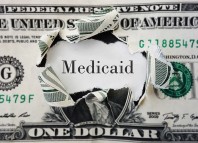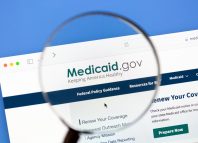Webinar on Thursday, July 9 at 1:00 pm – 2:00 pm ET
Register for the webinar.
Across the country, community-based organizations are responding to the needs of older adults and adults with disabilities by expanding options for virtual programming and service delivery. Virtual offerings can promote service continuity in lieu of in-person interactions, as well as foster social connectedness.
Join ACL and other national stakeholders for a webinar highlighting programs, best practices, and tips for creating communities of learning and engagement via technology. Presenters will address marketing/outreach, barriers to virtual participation, strategies for holding interactive and inclusive conversations, and more.
This webinar will be recorded and posted on ACL’s COVID-19 web page.
Presenters: Ryan Elza, AARP Foundation; Stephen Ewell, Consumer Technology Association (CTA) Foundation; Thomas Kamber, Older Adults Technology Services (OATS); Susan Stiles, National Council on Aging
Contact Kristie Kulinski with registration questions.

















